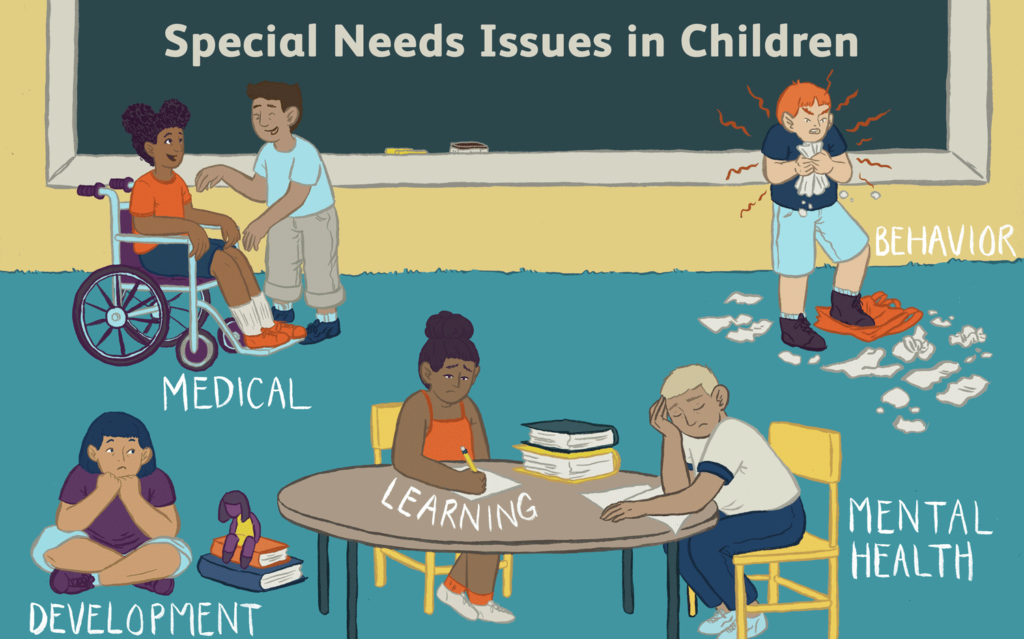Choosing the right school for your child is one of the most important decisions you can make as a parent in Dehradun. Beyond academics, it is essential to choose an institution that nurtures every child’s individual learning journey. For parents of children with special needs, this decision becomes even more critical.
Support Children with Special Needs must be a key focus for any inclusive education system. Inclusive schools are those that not only accept but also embrace diversity, offering resources, trained staff, and environments tailored to the unique requirements of each child.
Understanding Special Needs in Education
Before evaluating how schools can support children with special needs, it’s important to understand what “special needs” means in an educational setting. These can include learning disabilities (such as dyslexia), physical disabilities, emotional and behavioural challenges, developmental delays, and more. Each child is unique, and the approach to supporting them must be equally personalised.
Key Ways Schools Can Support Children with Special Needs
1. Trained Special Education Staff
Schools that support children with special needs often employ special educators who are trained to identify and address different challenges. These professionals develop Individualised Education Plans (IEPs) that map out tailored strategies for each student.
2. Inclusive Classrooms
A classroom that fosters a sense of belonging is vital. Schools should implement inclusive teaching practices, where students with and without special needs learn side-by-side. This approach encourages empathy, peer support, and social development.
3. Collaborative Learning Plans
To truly support children with special needs, schools must collaborate with parents, therapists, and healthcare providers. Regular communication ensures consistent strategies at home and school.
4. Accessible Infrastructure
Physical accessibility is critical for students with mobility issues. Ramps, elevators, accessible toilets, and ergonomic furniture ensure that the school environment is safe and welcoming.
5. Technology Integration
Modern schools use assistive technology such as speech-to-text software, audiobooks, and interactive learning tools to aid children with various disabilities. These tools enhance engagement and promote independence.
6. Emotional and Social Support Systems
Support children with special needs through in-house counsellors and psychologists. These professionals help students manage anxiety, develop coping mechanisms, and build self-confidence.
7. Extracurricular Participation
Inclusion should extend beyond the classroom. Schools that support children with special needs should encourage participation in sports, arts, music, and other co-curricular activities to develop well-rounded personalities.

Importance of Sensitisation and Awareness
All members of the school community, including teachers, administrators, and students, must be sensitised about special needs education. Regular workshops and training sessions can help remove stigma and foster an environment of understanding and acceptance.
Verified Campus highlights schools that actively promote sensitisation and awareness programs. Parents can rely on Verified Campus to compare institutions that foster inclusive and empathetic learning environments.
Role of Parents in Collaboration
Parents are invaluable partners in creating a support system. Schools should involve them in planning and decision-making processes. This partnership ensures that the child’s needs are met both at school and at home.
Recognising Success Stories
Highlighting success stories of children who thrive due to proper support systems can inspire other parents and schools. These real-life examples showcase the importance of commitment, resources, and compassion in inclusive education.
Policies and Legal Framework
India’s Right to Education (RTE) Act and other laws promote inclusive education. Schools that support children with special needs must align with these frameworks, ensuring they meet required standards.
Continuous Professional Development
Teachers must be encouraged to undergo regular training to stay updated with best practices in special education. Continuous professional development is crucial to improve support systems.
Importance of Early Intervention
Early identification and support can significantly enhance a child’s developmental trajectory. Schools must have screening processes in place to identify children who may benefit from special education services.

Choosing the Right School
When searching for a school that can support children with special needs, parents should consider:
- Availability of trained special educators
- Infrastructure accessibility
- Attitude towards inclusion
- Parental involvement
- Customized learning plans
Verified Campus, the best school listing portal in Dehradun, offers detailed listings and filters to help parents identify schools that provide these essential features.
Conclusion
Supporting children with special needs is not just a requirement; it’s a moral and educational obligation. Schools must create inclusive spaces where every child can thrive, irrespective of their abilities. From infrastructure to attitude, every element matters. Verified Campus, the best school listing portal in Dehradun, can be your trusted guide in making this important decision. By choosing a school that aligns with inclusive education values, parents take a significant step toward securing a better future for their children.


